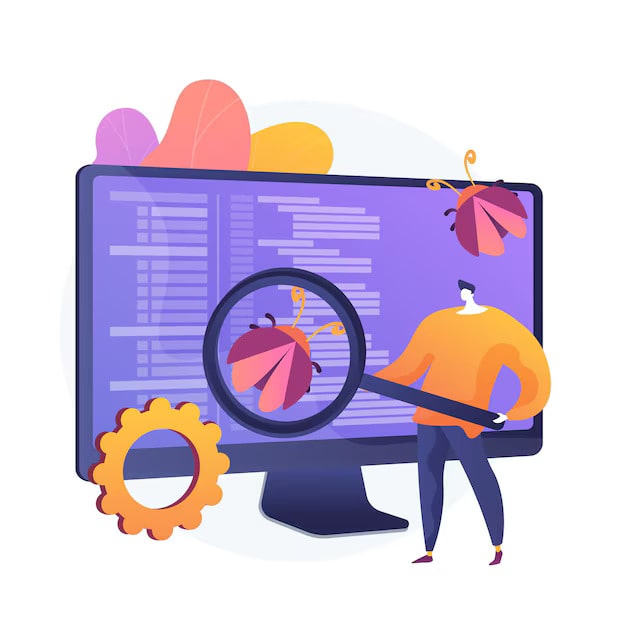Embarking on a career transition from a non-IT field to software testing is not only feasible but can be a rewarding journey when approached strategically. In this step-by-step guide, we will delve into the essential stages, incorporating insights from “Testing Shastra,” to facilitate a seamless transition, empowering you to thrive in the dynamic realm of software testing.
- Researching the Foundations of Software Testing: Begin your journey by comprehensively researching the basics of software testing. Gain insights into its pivotal role in the software development life cycle, diverse testing methodologies, and the crucial skills demanded by this dynamic field.
- Understanding Fundamental IT Concepts: Develop a solid understanding of fundamental IT concepts, unraveling the intricacies of computer operations, basic programming principles, and the overarching software development process. This foundational knowledge lays the groundwork for grasping the nuances of software testing.
- Building Essential Technical Proficiency: Hone your technical skills by mastering operating systems, file systems, and basic command line operations. This proficiency empowers you to navigate testing environments with confidence and competence.
- Engaging in Targeted Online Learning: Enroll in online courses and workshops tailored for beginners in software testing. These courses cover a spectrum of topics, including manual testing, test automation, and the utilization of popular testing tools, providing you with a comprehensive skill set.
Is Software Testing The Right Career For You?
Discovering if a career in software testing is the right fit for you involves assessing various factors that connect with your skills, interests, and career aspirations.
- Keen Eye for Detail: If you find satisfaction in meticulously identifying and analyzing issues, software testing might be an excellent match. Testers often play a crucial role in scrutinizing software for defects and inconsistencies, requiring sharp attention to detail.
- Strong Analytical Skills: Software testing demands robust analytical skills for understanding software requirements, crafting effective test cases, and interpreting test results. If you enjoy problem-solving and critical thinking, a career in testing could be a natural fi
- Curiosity and Learning Mindset: The realm of software testing is ever-evolving, with ongoing advancements in technologies and methodologies.
- Effective Communication: Communication plays a pivotal role in software testing. Testers need to express their findings clearly through written reports, bug documentation, and sometimes verbal communication.
Learn The Basics of Software Testing:
Originating from a non-IT background, my knowledge of testing was initially limited to what I discovered on my own. Starting from scratch, I chose to enroll in QualityWorks’ Software Testing Bootcamp, where seasoned testers shared valuable insights. This experience was instrumental in laying a solid foundation, proving advantageous as I embarked on my journey as a tester.
For those inclined, considering a dedicated course is also a valuable choice. This can complement a boot camp for a more comprehensive learning experience or serve as an alternative if suitable boot camp options are scarce. To continually expand your knowledge and skills in the testing domain, a plethora of online resources awaits exploration:
- Testing Shastra Software Testing Institute: Explore resources from Testing Shastra, a valuable addition to your learning journey.
- Test Automation University: This platform provides diverse learning paths to initiate you into automation testing. Personally, I’ve taken several courses here, finding it an excellent learning resource.
- Test Guild: Test Guild is another valuable resource featuring a rich collection of podcasts, blogs, and an active online community focused on software testing. Joining this community opens doors to additional learning opportunities and connections.
Get A Certification:
If you’re seeking a certification in software testing, consider the offerings from Testing Shastra. This certification program is designed to equip individuals with comprehensive knowledge and practical skills in the dynamic field of software testing.
- Comprehensive Curriculum: The certification covers a broad spectrum of topics, ranging from fundamental testing concepts to advanced methodologies, ensuring a well-rounded understanding.
- Hands-On Practical Training: The program emphasizes hands-on training, allowing participants to apply theoretical knowledge to real-world testing scenarios. This practical approach enhances skill development and readiness for industry demands.
- Expert Instructors: Learn from seasoned professionals and experts in the field of software testing. The instructors at Testing Shastra bring a wealth of industry experience to guide participants through the certification journey.
Certification Process:
- Enrollment: Register for the Testing Shastra certification, choosing a track aligned with your experience level and career objectives.
- Structured Learning: Navigate through well-organized learning modules, covering theory, practical applications, and case studies to build a comprehensive skill set.
- Hands-On Projects: Apply your knowledge in real-world testing scenarios through hands-on projects, gaining practical experience crucial for success in the field.
- Assessment and Evaluation: Undergo assessments to gauge your understanding and evaluate your ability to apply acquired knowledge effectively.
- Certification Achievement: Successfully complete the program to earn a certification from Testing Shastra, validating your expertise in the dynamic realm of software testing.
Conclusion:
Testing Shastra becomes a trusted companion in the educational and skill development journey, especially for those venturing into this career path. By blending foundational knowledge from research, online courses, and hands-on experience with the specialized expertise of Testing Shastra, non-IT graduates can confidently navigate the dynamic world of software testing. The comprehensive backing and insights provided by Testing Shastra significantly boost one’s capacity to not just survive but thrive in the ever-evolving landscape of software testing.







